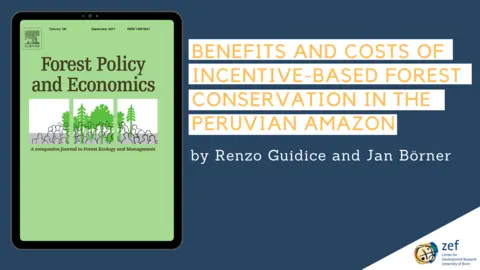Benefits and costs of incentive-based forest conservation in the Peruvian Amazon
August 24, 2021.
Abstract
A growing literature focuses on evaluating the effectiveness of forest conservation policies, but few studies explore where and under which conditions programs produce net positive benefits. Quantifying the costs and benefits of conservation policy instruments contributes to making impact evaluation more relevant for policy makers and can help to improve program design. Here we analyze the costs and benefits of deforestation avoided by the Peruvian Programa Bosques between 2011 and 2015. Our approach builds on an ex post counterfactual-based impact evaluation and considers spatial heterogeneity in conservation opportunity costs as well as uncertainty across a wide range of parameters. We rely on existing social cost of carbon estimates to value benefits and calculate implementation and administration costs from primary and secondary sources. Our estimates suggest that deforestation was avoided at a negative net future value of US$ 13.7 Million in 2015. Poor conservation performance is mainly due to high implementation and administration costs (~67% of total budget). Nevertheless, participating communities benefited from an estimated net transfer of US$ 7.7 Million. Our result emphasizes the need to boost impact, secure the permanence of the avoided deforestation, and minimize program implementation costs, while paying carefully attention to distributional outcomes.
Read Article here: https://www.sciencedirect.com/science/article/pii/S1389934121001659?dgcid=author


